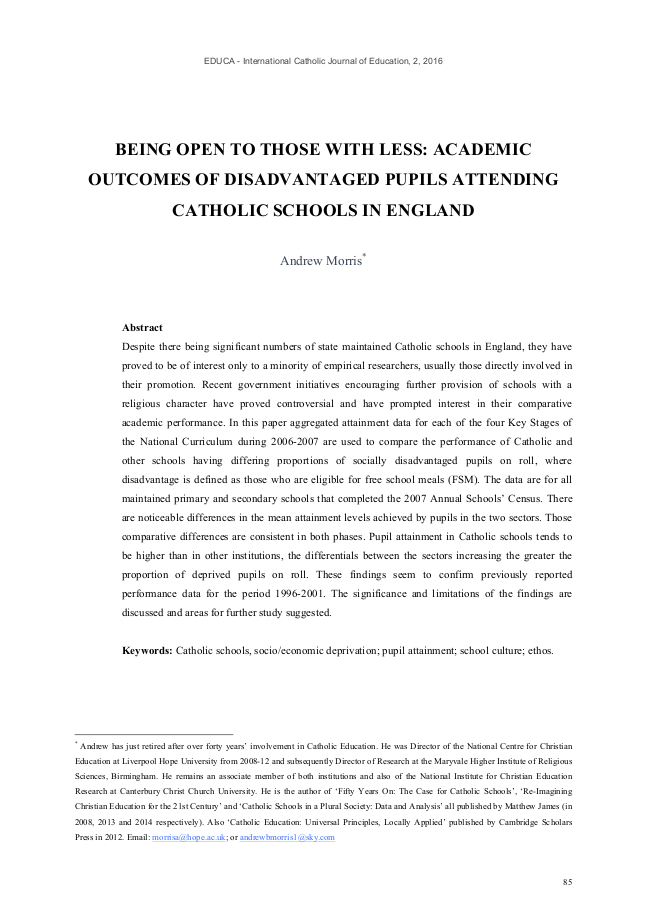Being open to those with less Academic outcomes of disadvantaged pupils attending Catholic Schools in England
Main Article Content
Abstract
Despite there being significant numbers of state maintained Catholic schools in England, they have proved to be of interest only to a minority of empirical researchers, usually those directly involved in their promotion. Recent government initiatives encouraging further provision of schools with a religious character have proved controversial and have prompted interest in their comparative academic performance. In this paper aggregated attainment data for each of the four Key Stages of the National Curriculum during 2006-2007 are used to compare the performance of Catholic and other schools having differing proportions of socially disadvantaged pupils on roll, where disadvantage is defined as those who are eligible for free school meals (FSM). The data are for all maintained primary and secondary schools that completed the 2007 Annual Schools’ Census. There are noticeable differences in the mean attainment levels achieved by pupils in the two sectors. Those comparative differences are consistent in both phases. Pupil attainment in Catholic schools tends to be higher than in other institutions, the differentials between the sectors increasing the greater the proportion of deprived pupils on roll. These findings seem to confirm previously reported performance data for the period 1996-2001. The significance and limitations of the findings are discussed and areas for further study suggested.

